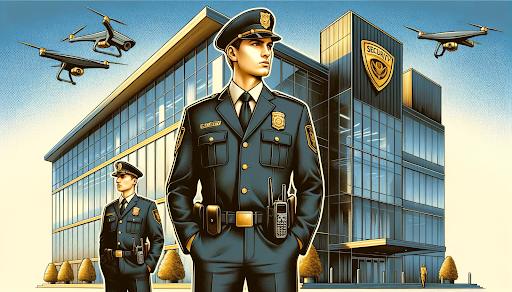Security personnel play a pivotal role in maintaining the safety and integrity of properties and buildings, ensuring a secure environment for everyone within. This blog post is tailored for property managers, chief security officers, and security company hiring managers who are seeking to understand the comprehensive roles and responsibilities these professionals bear. We're aiming for a conversational tone to keep things light yet informative, breaking down the complexities of security work into digestible insights.
The Core Responsibilities
At the heart of a security personnel’s job description lies the responsibility to protect property, assets, and people. This broad directive branches into numerous tasks, each crucial in its own right. Let’s dissect these roles:
1. Patrol and Surveillance
Regular patrols and surveillance are the linchpins of effective security. Personnel are tasked with monitoring premises to detect and deter unauthorized entry, vandalism, and any other suspicious activity. This proactive approach is essential in preventing incidents before they escalate.
2. Access Control
Controlling access to the building is another critical duty. Security teams manage entry points to ensure only authorized individuals gain access, safeguarding against potential threats. This involves checking identifications, signing in visitors, and sometimes overseeing the distribution of secure keys or access cards.
3. Emergency Response
In the event of an emergency, security personnel are often the first responders. Whether it’s a medical emergency, a fire, or a security breach, they must act swiftly to manage the situation, coordinating with emergency services and implementing evacuation procedures if necessary.
4. Reporting and Documentation
Keeping detailed records is key to maintaining a secure environment. Security staff document daily activities, incident reports, and any anomalies observed during their shift. This information is crucial for investigative purposes and for improving future security measures.
5. Customer Service
Security personnel also serve as the face of the property they protect, often being visitors' first point of contact. As such, they need to provide excellent customer service, guiding visitors, answering queries, and assisting with directions or information.
The Skills That Matter
To effectively carry out these responsibilities, security personnel must possess a specific set of skills. Let’s highlight a few:
-
Vigilance and Attention to Detail: The ability to notice out-of-the-ordinary occurrences that might signify security threats.
-
Physical Fitness: Being in good physical condition to handle patrols and, if necessary, confrontations.
-
Effective Communication: Clear communication skills are essential, especially in emergencies.
-
Problem-solving Abilities: The capacity to quickly assess and respond to security challenges as they arise.
Training and Qualifications
Security personnel typically undergo training programs covering various aspects of their job, from emergency response techniques to customer service. While requirements can vary depending on the employer and the property’s needs, a combination of classroom instruction and on-the-job training is common practice.
The Impact of Technology
Advancements in technology have significantly influenced the roles and responsibilities of security personnel. Surveillance systems, access control technologies, and mobile communication devices are just a few examples of tools that have become integral to modern security operations. These technologies enable security teams to monitor larger areas more efficiently and respond to incidents with greater speed and effectiveness.
.png)
.png)
.png)

.png)
.png)

.png)
.png)
.png)
.png)
